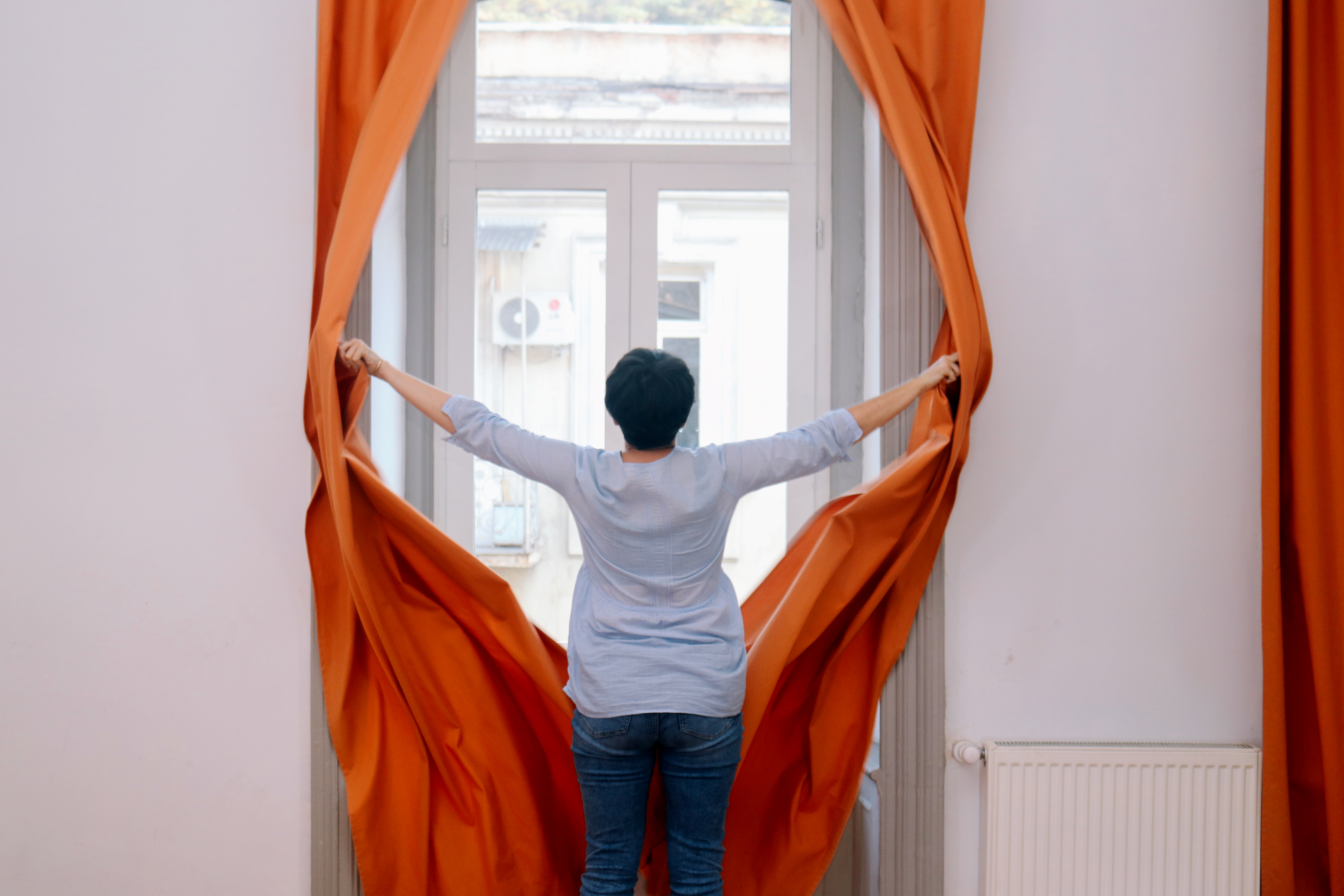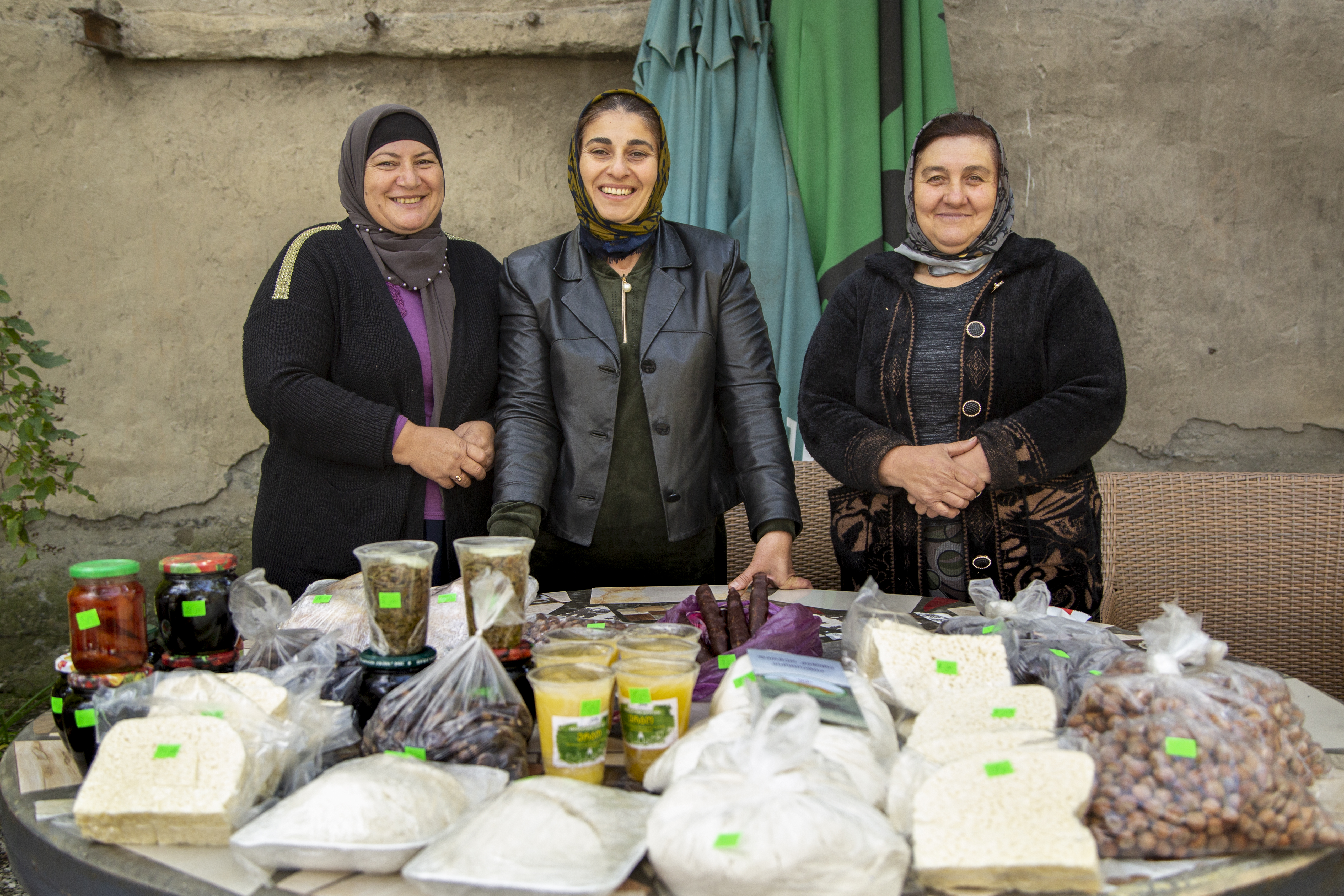We Need Equality campaign advocates for women's economic empowerment giving voice to single mothers, women migrants, women in low-paid jobs and survivors of sexual harassment
The House of Women
October 16, 2018
Photo: Geda Darchia/UNDP
“We are single mothers, women migrants, women in low-paid jobs. We fall victims of abuse at work. We face discrimination in property rights. We carry an unequal burden of housework. We live next to you. Listen to us. Talk to us. Change the reality.”
These messages were scribbled on a torn-out page of an old-fashioned wall calendar. On the other side there was a hand-written invitation. The address indicated a residential building in the old neighbourhood of Georgia’s capitol, Tbilisi.
At the given time, on a sunny September afternoon, the intrigued guests who arrived at the traditional courtyard of the building were met by the organisers of the campaign “We Need Equality” and guided to the House of Women – an apartment turned into a performance space, inhabited by the campaign heroines.
There was a real person with a real story in each of the rooms: Sopo, a single mother of three, who struggles to find a day job because of the housework burden; Tatia, the first woman in Georgia who filed a law suit accusing her boss of sexual harassment; and Tsitsino, a carpenter who cannot expand her small enterprise because she doesn’t own a property that she could pledge as a guarantee for a business loan. The last room was dedicated to the women who left the country for economic reasons. The space was dominated by a huge screen displaying an emotional virtual conversation between a migrant mother and her daughter.
The visibly moved audience was then invited back to the courtyard where the host of the House of Women, a renowned Georgian actor Nata Murvanidze, together with the heroes of the performance, hung big white sheets with slogans on a wire. The symbolic washing read: “We need a law on sexual harassment”, “Wage gap is unfair. Let’s change it”, “Women and men need to share the burden of domestic work” and simply “We Need Equality”.
“Currently, Georgia faces 35% gender pay gap, alarming statistics of gender-based violence and low participation of women in economic and political life. On the other hand, the estimates say that if women were fully exploring their potential, the country’s GDP would grow by at least 10 percent,” Tuya Altangerel, UNDP Deputy Resident Representative in Georgia, said.
Photo: Nino Zerdginidze/UNDP
The campaign We Need Equality, together with the installations representing the House of Women, moved later to the regions of Georgia. The next event was held in the city of Telavi, where it merged with a celebration of the International Day of Rural Women and brought together representatives of the Georgian Ministry of Regional Development and Infrastructure, Ministry of Environmental protection and Agriculture, Telavi City Hall and civil society organizations.
The interactive installation and public discussion were accompanied by a colourful display of foods produced by the members of Georgian Women Farmers Association.
Tatia, who was forced to leave her job after suing her boss over harassment at a workplace, was taking part in the discussion.
“We need to push for a change”, she argued. “On the decision-making level, politics and business in Georgia are largely dominated by men. Despite some progress, the society is still deeply rooted in false perceptions on what roles men and women should be taking. We need to change that perspective starting from our own yards, neighbourhoods, workplaces and ending with the parliament”, Tatia said.
The campaign We Need Equality was launched in 2017 by UNDP under the UN Joint Programme for Gender Equality in Georgia funded by the Government of Sweden. Its first wave focused on political participation of women, while the current edition advocates for women’s economic empowerment. The campaign reaches out to people in all regions of Georgia to raise questions, stir debate and, most importantly, to help find solutions.
October 2018

 Locations
Locations






